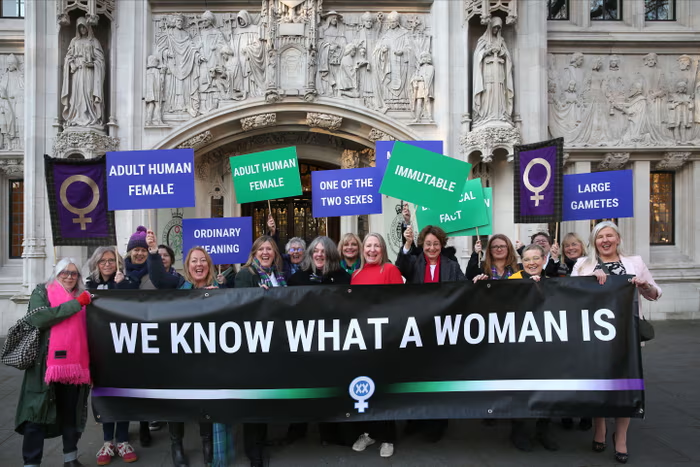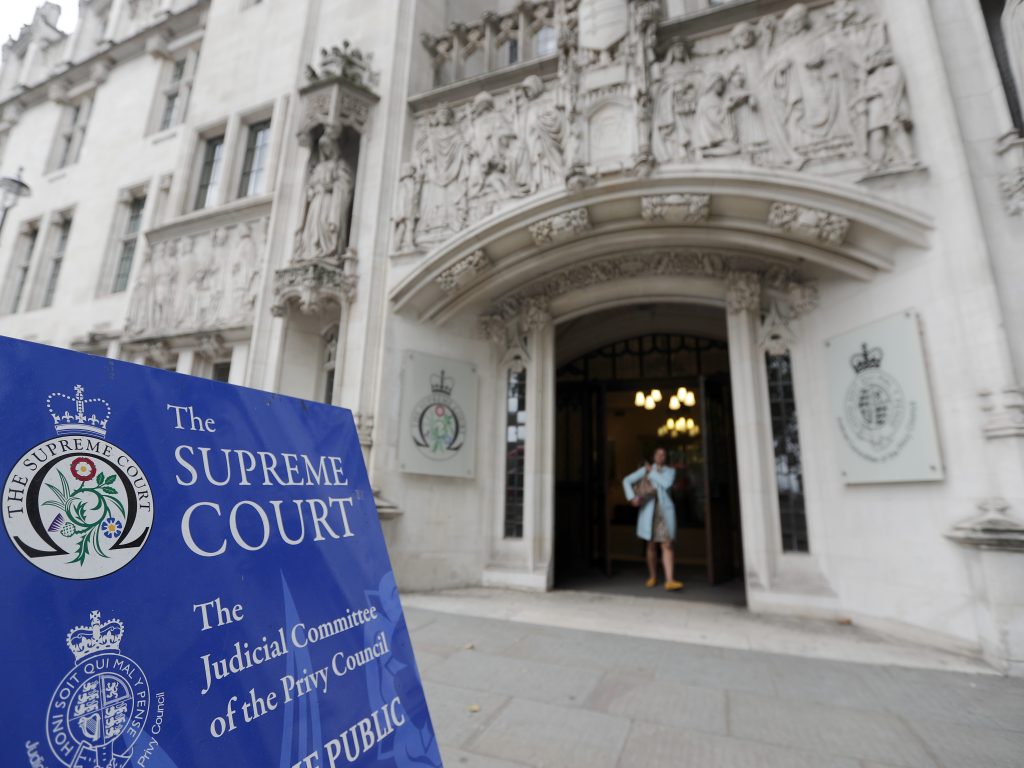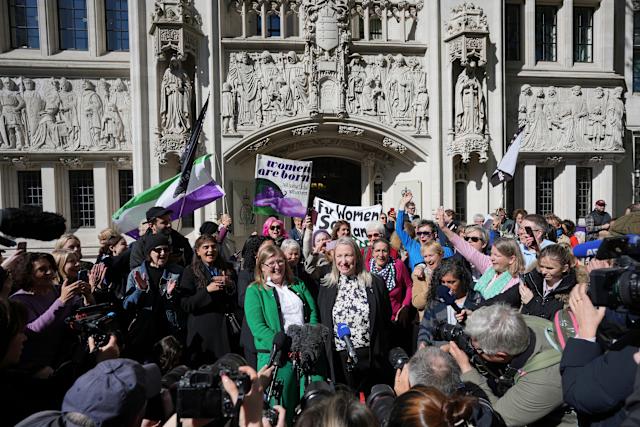Landmark ruling hailed as victory for women’s rights but sparks concern for trans community
IN A LANDMARK judgment with far-reaching implications, the UK Supreme Court has ruled unanimously that the legal definition of a “woman” in the Equality Act 2010 refers exclusively to biological females. The ruling, delivered on Wednesday (Apr 16), marks a decisive legal victory for gender-critical campaigners and ends years of ambiguity over how the law should treat transgender women in single-sex spaces and public appointments.
The case was brought by the campaign group For Women Scotland (FWS), who challenged the Scottish Government’s policy allowing transgender women with Gender Recognition Certificates (GRCs) to be counted as women on public boards under legislation designed to achieve gender balance.
The Supreme Court ruled that such a definition went beyond the powers of the Scottish Parliament and was inconsistent with the meaning of “woman” under the Equality Act.

Legal clarity on biological sex
Deputy President of the Court, Lord Hodge, said the justices found that “sex” in the Equality Act refers to a biological woman and biological sex. “Although the word ‘biological’ does not appear in this definition, the ordinary meaning of those plain and unambiguous words corresponds with the biological characteristics that make an individual a man or a woman,” he said.
The judges rejected the argument that sex could be interpreted based on GRCs, calling such a view “incoherent” and “fanciful.” They further warned that allowing a definition of sex based on certification would create “heterogeneous groupings” and undermine the protections the law intends to offer.
Implications for single-sex spaces and policies
The ruling affirms that protections under the Equality Act apply to biological sex, enabling organisations to restrict access to women-only spaces and services — such as domestic violence refuges, rape crisis centres, hospital wards, and changing rooms — based on biological sex rather than legal gender status.
The Court emphasised that the ruling does not diminish the protections transgender people have under the protected characteristic of “gender reassignment,” but clarified that a person’s biological sex cannot be altered by acquiring a GRC for the purpose of the Equality Act.
In a key passage, the judges noted: “A man who identifies as a woman who is treated less favourably because of the protected characteristic of gender reassignment will be able to claim on that basis.”
Government and campaign reaction
A UK Government spokesperson welcomed the decision, saying it “brings clarity and confidence for women and service providers such as hospitals, refuges, and sports clubs.”
Former Equalities Minister and now Conservative Leader Kemi Badenoch called it a “victory for women,” adding: “Women are women and men are men: you cannot change your biological sex.”
Mims Davies MP, the Conservative shadow women’s minister, said the government must now “clarify all existing guidance to ensure public bodies understand that sex means biological sex.”
Former SNP MP Joanna Cherry KC, who previously warned that broad definitions of sex could harm women’s rights, said she felt “hugely vindicated” and urged both UK and Scottish governments to implement the ruling into everyday policy.
Lara Brown of the Policy Exchange thinktank said the decision “secured women’s sex-based rights,” adding: “It should never have taken a court case to prove the biological definition of a woman.”
Celebrations and protest
Marion Calder and Susan Smith of For Women Scotland were photographed celebrating outside the Supreme Court, with FWS posting jubilant messages on social media. The group Sex Matters, which intervened in the case, said: “The court has given the right answer: the protected characteristic of sex – male and female – refers to reality, not paperwork.”
However, trans rights campaigners expressed alarm at the wider impact of the ruling. Scottish Trans urged supporters “not to panic,” while Ellie Gomersall of the Scottish Greens said the judgment “undermines the vital human rights of my community to dignity, safety and the right to be respected for who we are.”
Amnesty International, the only trans-inclusive organisation allowed to intervene, warned the case could be the “thin end of the wedge” and potentially erode other rights for transgender people.
Legal background and funding
The ruling concludes a long-running legal battle over the Gender Representation on Public Boards (Scotland) Act 2018, which sought to ensure 50% female representation and included trans women with GRCs in the definition of “woman.” FWS argued this conflicted with the Equality Act’s definition of sex and that Holyrood had exceeded its legislative competence.
Their challenge was dismissed in the Scottish courts before being brought to the Supreme Court. A crowdfunding campaign led by FWS raised £230,000 for legal costs, including a £70,000 contribution from author JK Rowling.
No transgender individuals were allowed to participate directly in the hearings, a decision criticised by some legal commentators, including retired judge Victoria McCloud, who said an international appeal might have been pursued if the case had gone the other way.
Future legislative reform?
While the ruling interprets existing law, it does not itself change legislation. However, it is expected to lead to renewed calls for Parliament to amend the Equality Act 2010 to reflect modern understandings of gender and sex — or to confirm its reliance on biological definitions.
The Equality and Human Rights Commission has previously called for the Act to be clarified, warning that MPs “had not appreciated the consequences for women and lesbians” of the law viewing transgender women with GRCs as legally female.
There are also concerns the ruling may embolden those campaigning to reverse aspects of the Gender Recognition Act 2004, particularly around the legal recognition of acquired gender.
Despite shelving previous reform plans, Labour has indicated it remains committed to protecting transgender rights and is expected to proceed with a trans-inclusive ban on conversion practices later this year.
A moment of reckoning
The Herald understands this decision marks a pivotal moment in UK equalities law, drawing a firm legal distinction between sex and gender identity. For some, it is a long-overdue return to legal clarity and sex-based rights; for others, it represents a retreat from inclusion and a chilling signal to the trans community.
Lord Hodge concluded the judgment by urging restraint, saying: “This should not be seen as a triumph of one group over another.” Yet as the dust settles on the Supreme Court steps, both sides are preparing for what comes next.
















